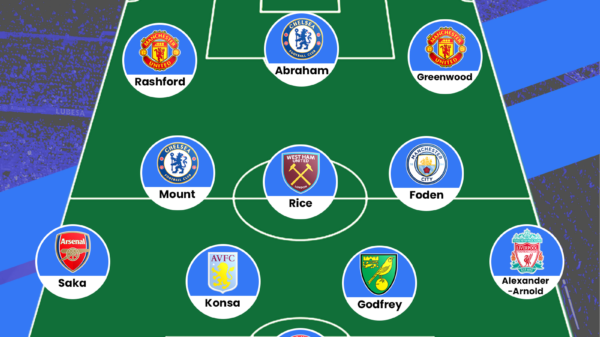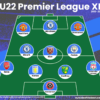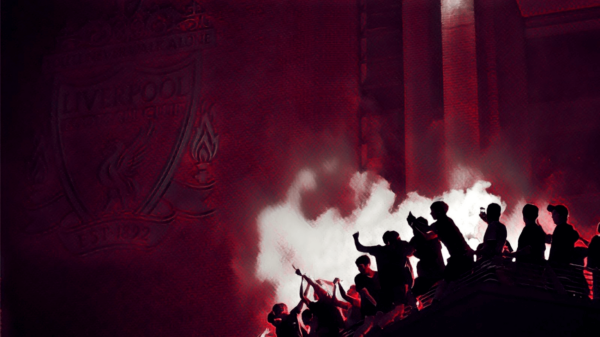In most highlight reels of the last World Cup one of the most recurrent images was of the Bosnian midfielder, Muhamed Bešić tumbling over his own defender Ermin Bicakic as Messi slalomed past Bosnian defence to score one of his routine jaw dropping goals leaving an unfortunate Bešić colliding with Bicakcic in their opening match against the eventual runners up Argentina. But Bešić had a wonderful World Cup contrary to what that pervasive sequence of events suggests.

Even prior to that 64th minute goal Bešić was successfully sticking to his assigned job of tracking Messi’s runs, in the process dispossessing the master several times throughout the match. It eventually took the Argentine’s genius to score that imperious goal, after a run that most defensive midfielders would have found difficult to contain let alone a relative green horn in Bešić.
The Berlin born Bosnian was initially not part of the manager, Safet Sušić’s plans during the World Cup qualifying phase, for which he preferred a very attacking 4-1-3-2 formation where the holding midfielder’s role was played by Haris Medunjanin. But leading to the quadrennial event Sušić started employing a more defensive and conventional 4-2-3-1, in which Bešić came into the side in place of the striker Vedad Ibisevic. A move that underpinned Sušić’s more careful approach unlike the very open set up he employed during the qualifying campaign.
After announcing his team for the quadrennial event Sušić had this to say, “I knew several months ago that (Muhamed) Bešić would be in the squad because he is the only player here who can handle the job of man-marking Lionel Messi.” He justified his manager’s faith quite remarkably.
The holding midfielder’s convincing displays during the matches prior to the World Cup and his fantastic job on the World’s best player meant he started all three matches in the tournament.
An important detail that puts the cherry on top of his performances in Brazil is the fact that he played majority of his international and two years at Ferencváros as a center back but still managed to perform so well in as demanding a position as defensive midfield.
Covering the World Cup as an analyst for a TV channel, Everton manager Roberto Martinez was impressed with what he saw of the Bosnian and brought him to Goodison Park for a reported fee of £4 million from the Hungarian outfit Ferencváros.
Who is Muhamed Bešić?
The Bosnian’s family had to leave the war torn Yugoslavia and move to Germany like so many of their fellow Bosniaks. Bešić was born on 10th September 1992 in Berlin and started playing for his local club Tennis Borussia Berlin at age nine. After developing with them for seven years he made his first big move to one of the giants of German football – SV Hamburg in 2009.
Being named a substitute for a number of matches during Hamburg’s 2010-11 campaign, Bešić finally got his debut against the eventual Bundesliga champions Borussia Dortmund when he came on as an 80th minute substitute with his side trailing 2-0. He finally made his first start against Borussia Mönchengladbach in a 2-1 win for his team.
For all his brilliance on the pitch Bešić did struggle early on with disciplinary issues off it. In March 2012, Bešić’s indiscipline saw him getting suspended from the Hamburg first team. If the media reports are to be believed he didn’t get along with the first team manager Torsten Fink and things came to the point where Torsten Fink “strangled” Bešić and threw him out of the dressing room, according to some sections of the Bosnian media.
In 2010 along with the senior club debut Bešić also made his Bosnia and Herzegovina U21 as well as the senior national team debut. After impressing on his U-21 debut in Sarajevo against the Italians, Sušić called him for the senior side’s friendly against Slovakia in November 2010. He came off the bench much like his club debut in the 79th minute of the tie for his first international match. And in the process became the youngest Bosnian debutante at the age of 18 years and two months. Bosnia won the contest in Bratislava 3-2.
His first start for the national team came the following year when he featured in defence against Mexico in 2-0 defeat in a friendly played in Atlanta, he had to wait a little longer for his competitive debut which came in the Euro 2012 qualifying campaign in a 2-0 win against Albania in June.
Bešić made two more senior appearances before being left out for two years eventually getting recalled for the World Cup campaign.
Though, he did play for the U-21 squad where he was a regular for the Euro 2013 unsuccessful qualifying campaign. During the campaign his old disciplinary issues cropped up again, and a bust-up with U21 coach Vlado Jagodic meant he was frozen from the squad.
His inability to see Bešić regularly led Sušić to not start him for the senior side either.
Problems with national team aside, Bešić flourished in Hungary playing in the heart of Ferencváros’ defence. In his first first season in Hungary, he was named the best foreign player in the division and also helped the club to victory in the League Cup.
His performances didn’t go unnoticed by the bigger European clubs and quite a few of them showed interest in procuring his services. English sides Tottenham, Aston Villa and Fulham among others were reported to be interested in him though nothing came to fruition.
Post the World Cup he signed for Everton. Playing for Roberto Martinez who is known for his eye for finding talented youngsters and one of the most technical managers in the game means Bešić is in safe hands to take his game a few notches higher and realize his full potential.
Style of play, strengths, and weaknesses
Bešić has become a regular starter for his national team and has done well in the Everton side as a defensive midfielder in the limited chances he has had so far. So assured has he been in midfield that it is easy to forget he has played majority of his career in central defence.
Bešić’s first appearance for Everton as a last minute substitute against Chelsea was a forgettable one when his first touch resulted in losing the ball to Jon Obi Mikel who assisted Diego Costa. He had a much better outing on his full debut against Mersyside rivals Liverpool where he showed his full range of skills. He looked extremely good in possession and shielded his defence to perfection; he ended the match with a commendable 86.8% passing accuracy from 68 touches of the ball.
Much like Sušić’s deployment of Bešić as a holding midfielder in his 4-2-3-1 for the national team, Martinez has also used him in the same role where he is paired with Gareth Barry at the base of midfield in the absence of the preferred James McCarthy, and has the difficult task of tracking the movement of the opposition playmaker, giving his midfielder partner solidity that enables him to move further up the pitch.
On the ball Bešić is very assured with his passing and ball retention skills. According to Squawka so far in his Premier League appearances he has passing accuracy of 91% which shows his ability to find team mates in space.
The Bosnian is blessed with incredible pace which allows him to cover his opponents even if they have a few yards of head start. During their World Cup fixture against Nigeria he made a well timed tackle after a lung busting run on Ahmad Musa at a crucial juncture in the match. The world took full notice of his pace when he did the same against one of the fastest players in the game – Gareth Bale in the Euro qualifier a week ago.
He has a lot to develop in the defensive side of his game as is reflected by the meager 31% of duels won in the limited chances he has got at Everton which in comparison to his direct replacement, James McCarthy is half. He hasn’t won a single aerial duel which speaks of his lack of prowess in the air, and the stat is not an outlier as he didn’t win a single aerial duel during the World Cup either. He lags behind in total clearances at 1.86, 0.37 blocks, committed 3.33 fouls per 90 minutes of action, and won only 2 tackles per match which are a reflection of the work he needs to put in to develop the defensive side of his game.
With all the defensive problems he does have a fairly good offensive game, he has a remarkable 91% pass completion rate, 91% successful take ons and made 0.67 key passes per game in the limited opportunities he has had.
These stats are a reflection of where the Bosnian’s strengths lie, his figures are still raw as he has got limited minutes in a new team, in a new league. He will definitely get better with time. And as the numbers suggest he might be due another switch as he had done in the past from the heart of defence to defensive midfield to perhaps a ball playing midfielder.
Under Martinez’s tutelage he is in safe hands for the future.
Written by Wasi Manazir
- Enrique’s indecision: Barcelona relying on moments of magic - December 14, 2014
- Dani Alves: A Bygone Threat? - November 27, 2014
- Scout Report | Muhamed Besic: Everton & Bosnia’s solid midfielder - November 20, 2014



























































